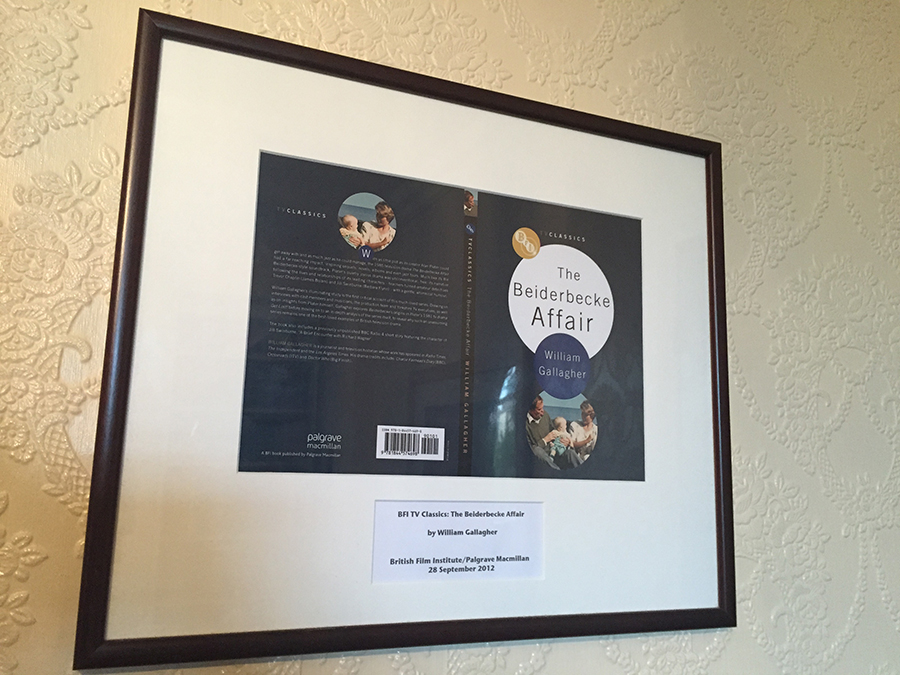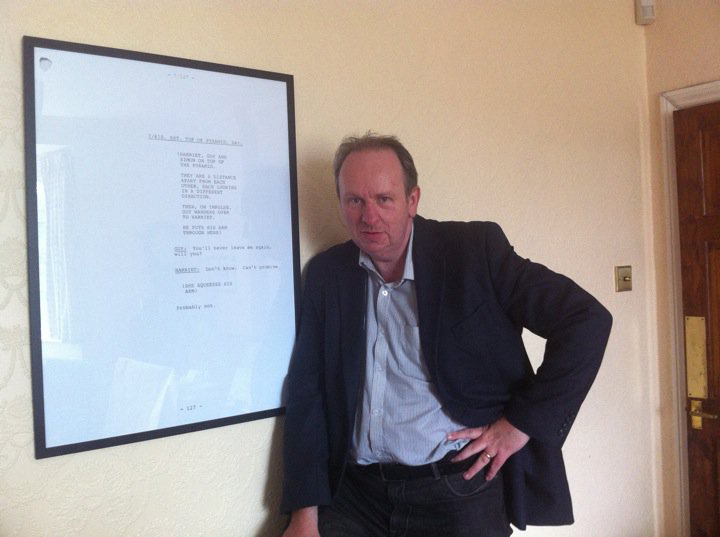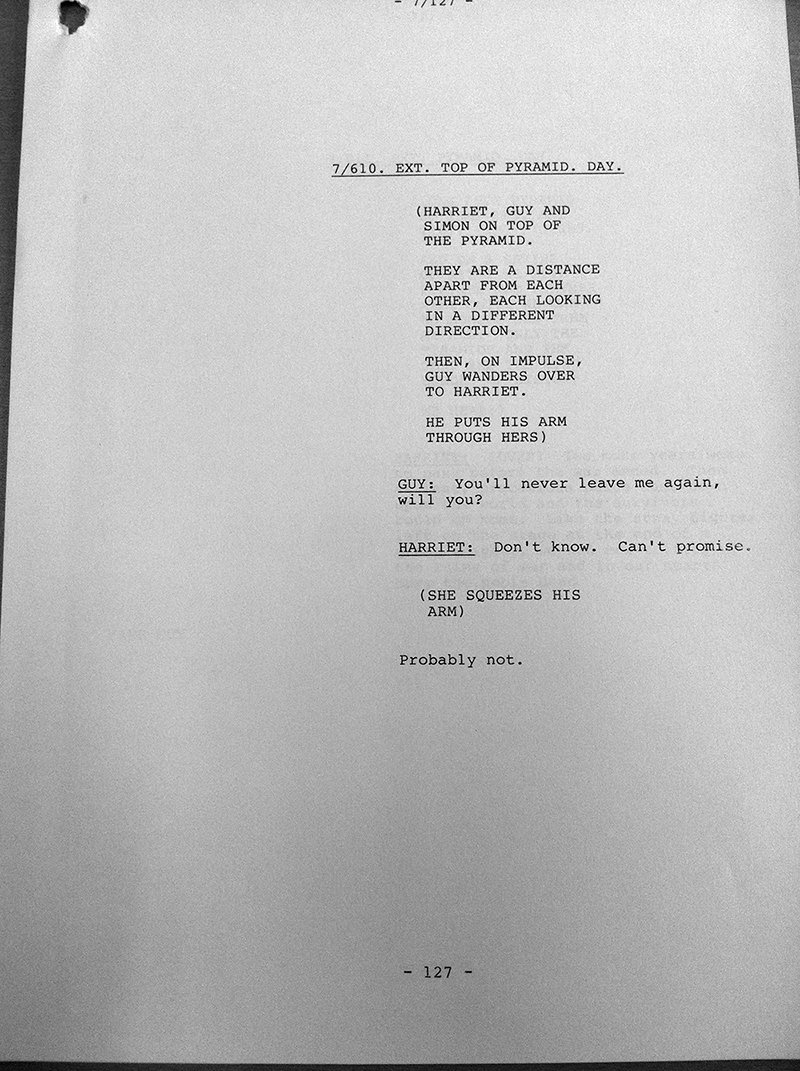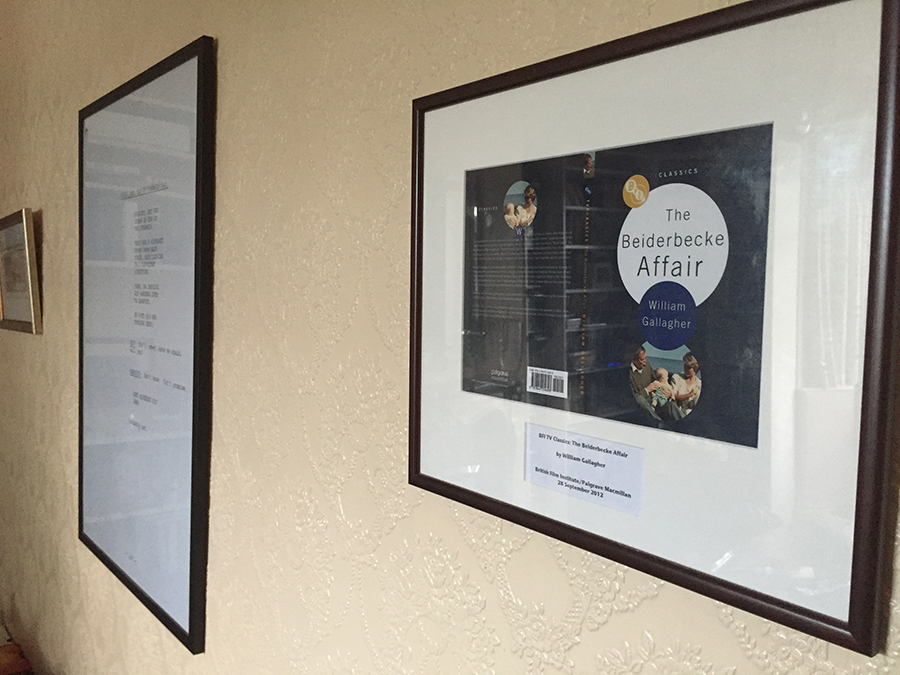I won’t stretch out the suspense: I learned from him that it’s your characters that matter more than anything and especially more than plot.
I’d like to just pause for a moment and explain that I may be being a bit previous saying that he taught it to me or even that I’ve actually learned it. I think I learned it, I certainly deeply believe in characters over plot, I know that it’s what I aim for and I hope that it’s what I do.
Also, it’s not like the man formally lectured. Nor is saying that I learned one writing tip terribly accurate as I don’t think a writer can watch any of Alan’s novels or 300-odd television, radio, film and stage tales without learning somewhat more than one thing.
But I have a striking visual memory of a moment sitting at the dinner table with Alan opposite and his wife, my friend, Shirley Rubinstein to my right. I remember being a bit young and I remember enthusing about some fantastically complicated plot I was writing. What I can’t remember is a single damn thing about that plot, not one syllable of it or even the title. Unfortunately I also can’t remember everything Alan said.
I just see him saying “No”.
He didn’t just say that, though I don’t imagine he said a great deal more, but I remember that moment and my clearest recall of the entire time was that I didn’t agree. It wasn’t that we argued, it wasn’t that I thought I’d show him, it was a tiny and passing moment more like the comment not registering with me.
It registered later. I don’t know when, I wish I could imagine how, but at some point it deeply registered. I can now neither imagine not believing in characters first nor conceive how I ever thought anything else. One of my absolute favourite things is to have my mind changed by someone: I have one opinion then they say something, they persuade me of something and from then on I hold completely the opposite opinion. It doesn’t happen very often but it’s great when it does, except there is usually very specifically one moment when it happens. Thought one thing, bam, think the other.
This one took years. I wish it had been a light switch kind of moment, primarily of course because I’d have written better, sooner, if it had. But also maybe I’d have been able to ask him to elaborate and I’d be able to tell you his position.
Alan died in 2010 and I was writing this way long before then but not stopping to examine it. I’ve stopped to examine it now because I was recently asked about a piece of his in an interview. He wrote a famous Z Cars episode called A Quiet Night and right from when he pitched the idea, it was set: this would be the episode in which nothing happens. He said that, he called it A Quiet Night, and to this day even people who saw it will tell you that nothing happens.
Part of it is that you do just enjoy spending time with these characters and that was something Alan always pulled off so well that you don’t realise how hard it is.
I can’t give you his opinion but I can give you mine. Characters matter more than plot because if you don’t care about the characters, who gives a damn what happens in the plot? Myself, I take one more step: I think dialogue is supreme. If I don’t believe that a character is saying these words, that instead it sounds like the writer conveying some plot, then I don’t believe in the characters and therefore I don’t care about them and therefore who gives a damn what happens in the plot?
The surprising thing to me is that my plots do still tend to be a bit, well, thorough, but they’re never plotted per se, they’re never planned. I get these characters and I see what happens to them. It’s as if by looking after the characters, the plot looks after itself.
The delicious thing to me is that I believe it’s the same with Alan. I detest claiming to know what someone would say if they were still here but I think he’d deny this because I think he used to claim that he didn’t do plots. With the greatest of respect and fondness, he lied.
I think I say this in my book about his show The Beiderbecke Affair but the man was trained as an architect and underneath all the business of nothing happening, gigantic things are happening and his scripts are structured superbly. A Quiet Night officially has nothing happening and despite Z Cars being a police series there is no crime in this episode, nobody is arrested, there will be no trial. Yet a man dies and it is someone’s fault. It is an enormous punch and stays with me years after I read the script. (The episode itself has been lost but the Z Cars script was published.)
That man who dies is a guest character and while the impact hits one of the regulars, it is because Alan made us care about this man we’ve not seen before and, well, clearly won’t see again. A Quiet Night was in 1963 and Alan was doing exactly the same thing with characters in the 2000s. I remember him asking me to read a Lewis script of his called And the Moonbeams Kiss the Sea. Actually he wondered what I thought of the plot and whether it worked. I am half proud and half not that I did see a plot problem and that a suggested fix of mine became something great in the final draft. I didn’t think of the great bit but I could see its root in what I’d said and that was a pretty good feeling.
Except there was this draft script and even there, on the page, with no idea who would be cast in a guest role, I told Alan that I fancied his leading character. That’s making you care. Lewis is a crime series and in this as in every episode ever made, there is a death and, admit it, you’re not that fussed about murder victims in these shows. But you were about this one.
I don’t remember the plot now, though I’m sure it was involving and interesting, but I vividly remember how I saw that character on the page and then how she was portrayed on screen. Because in retrospect it is only character that matters – because in whatever the opposite of retrospect is, when you’re writing right at the start, it is only character that matters.



